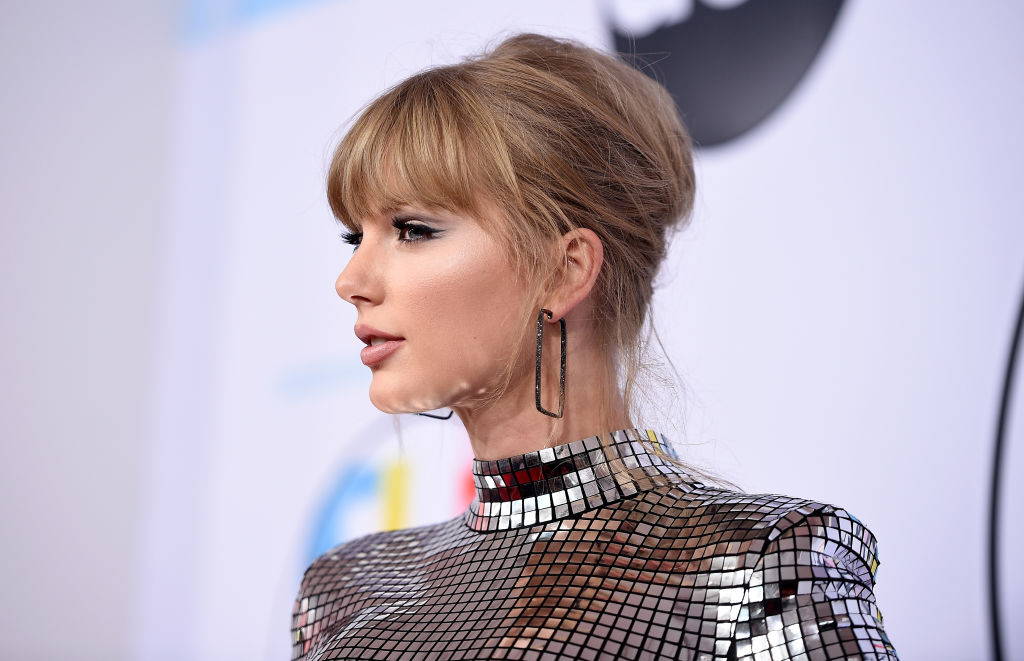Earlier this week, Taylor Swift broke her tradition of remaining publicly apolitical and endorsed two Democratic candidates running for office in November’s midterms: Phil Bredesen for Senate and Jim Cooper for House of Representatives, both of whom are running in Swift’s adopted home state of Tennessee. Swift took care in explaining why she was voting blue this term and condemned the views of GOP Senate hopeful Rep. Marsha Blackburn, a far right wing birther with a hardline anti-immigration stance.
“As much as I have in the past and would like to continue voting for women in office, I cannot support Marsha Blackburn,” Swift wrote in an Instagram caption. “Her voting record in Congress appalls and terrifies me. She voted against equal pay for women. She voted against the Reauthorization of the Violence Against Women Act. … She believes businesses have a right to refuse service to gay couples. She also believes they should not have the right to marry. These are not MY Tennessee values.”
Swift is obviously a skilled writer, and what she chose to omit is perhaps as significant as what she said. In her rare foray into the political arena, she focused on two statewide races. She didn’t reference President Trump or the Republican Party as a whole, only Blackburn, who falls on the extreme end of the conservative continuum. Yet she took care to point out that she’s voted for women in the past, as if she wanted to preempt the bad faith and myopic argument that a true feminist would support the woman on the ticket, even when that woman advocates repressive policies.
Still, though, she didn’t name names. Was Swift making an oblique reference to having voted for Hillary Clinton? Who else could she have been talking about? A spokesperson from the Davidson County Election Commission confirmed to Spin that Swift registered to vote there on April 19, 2010, and NBC News reporter Vaughn Hillyard reported that Swift voted in 2012 and 2016—both presidential election years—but didn’t register a party affiliation. In 2012, no women ran for national House or Senate races in Swift’s district. There were no Senate races in her state in 2016, but the incumbent Democrat congressman Jim Cooper’s GOP challenger was a woman, Stacy Ries Snyder. Swift may have voted for women candidates prior (she apparently registered elsewhere on her 18th birthday, in 2007) or in down-ticket races, but in recent elections where Tennessee residents chose politicians to represent them in D.C., there’ve been few women on the ballot besides Snyder and 2016 presidential candidate Hillary Clinton.

Also Read
Choppered and Tuned
We asked Swift’s representative if this week’s statement was a roundabout way of indicating a vote for Clinton in 2016. We didn’t hear back, nor did we really expect to. It’s hard to imagine that Swift would want to be dragged into a re-litigation of the most recent presidential election, especially when a midterm endorsement of red-state Democrats with far less baggage than the Clintons is enough to incite the likes of Mike Huckabee and Charlie Kirk to start taking shots at her. Swift’s comments at last night’s American Music Awards—she encouraged viewers to register to vote—made it clear her focus is on the upcoming election, not the prior one on which she was nonetheless conspicuously silent.
When the ruling party openly coddles racists, accused sexual predators, and anti-immigration hardliners, a supposedly neutral stance can look as almost as bad as open support. That’s a PR reality Swift encountered again and again over the past two years, as she attracted bad press for threatening legal action against an obscure blog that criticized her political silence and watched the internet’s neo-Nazi fringe attempt to co-opt her carefully cultivated public image. In the age of online political activism, the notion that one’s vote is private feels more antiquated than ever. As Swift noted in her Instagram post, her change of heart on political speech is the result of experience. Alienating conservative fans is a risk she’s finally willing to take, but that doesn’t mean she hasn’t calculated the costs and benefits of coming out against Trump, or in belated support of Clinton. Perhaps, in classic Taylor Swift fashion, she decided to just wink and hint at it.




